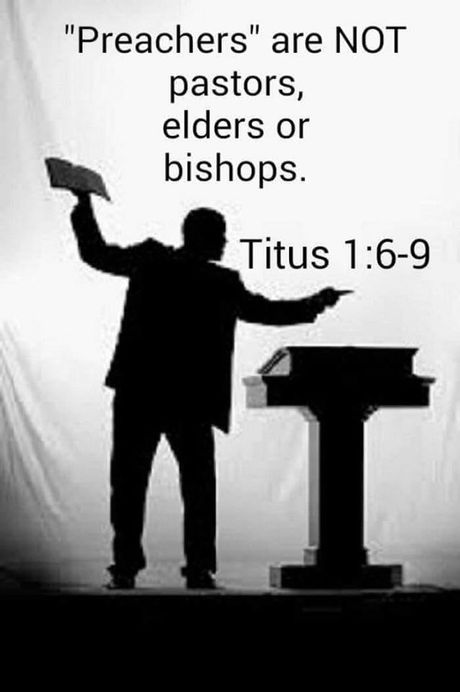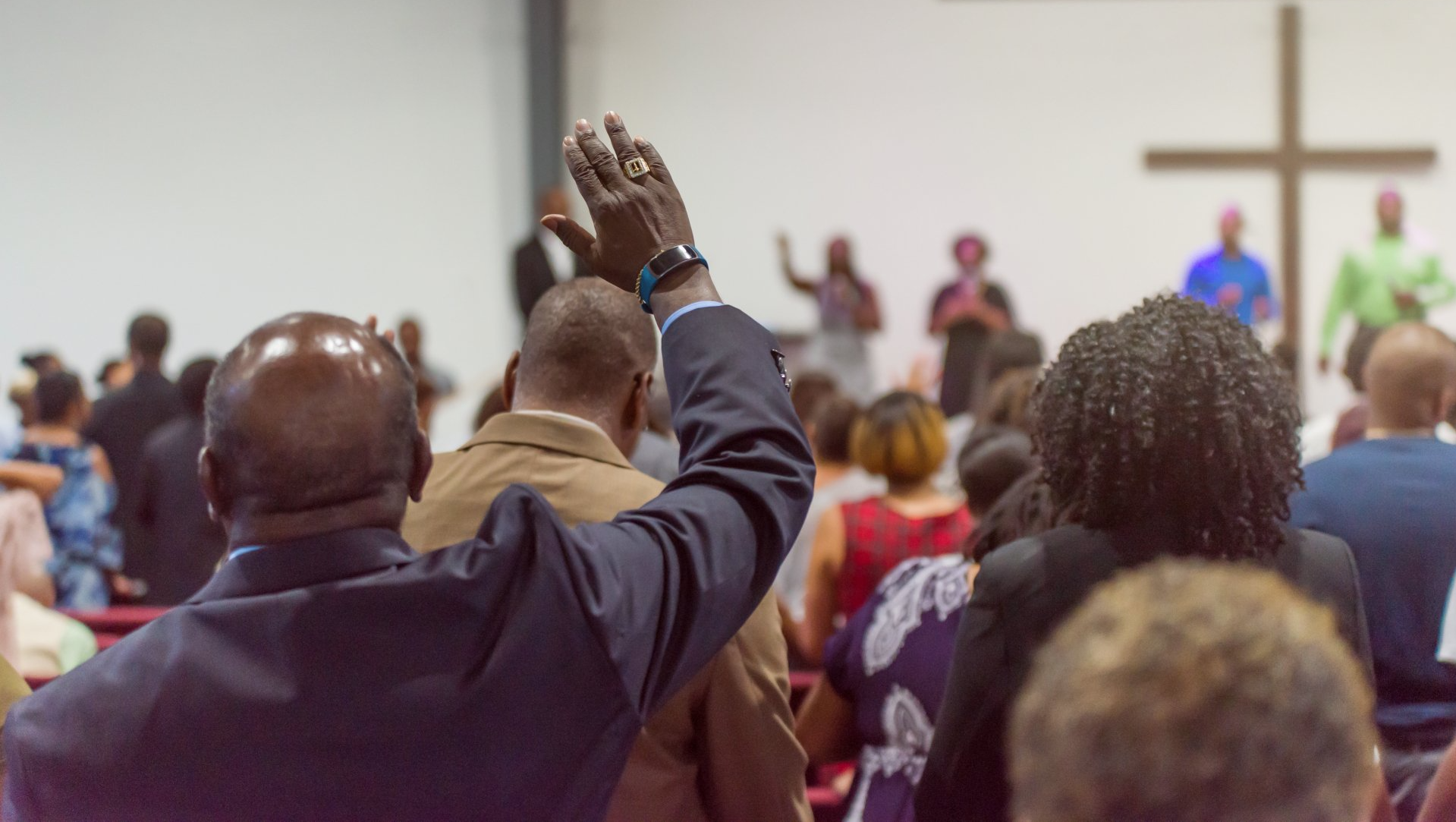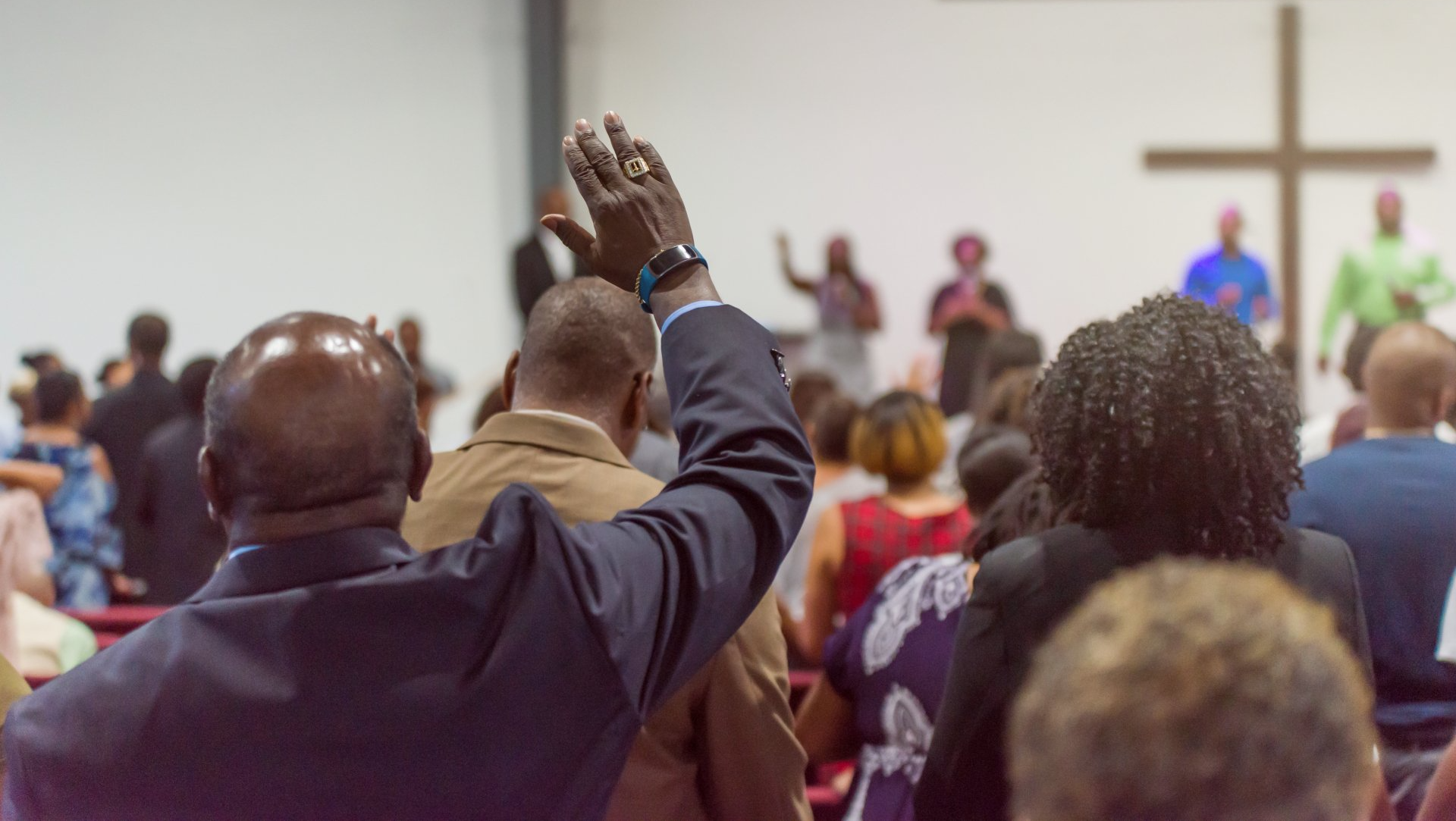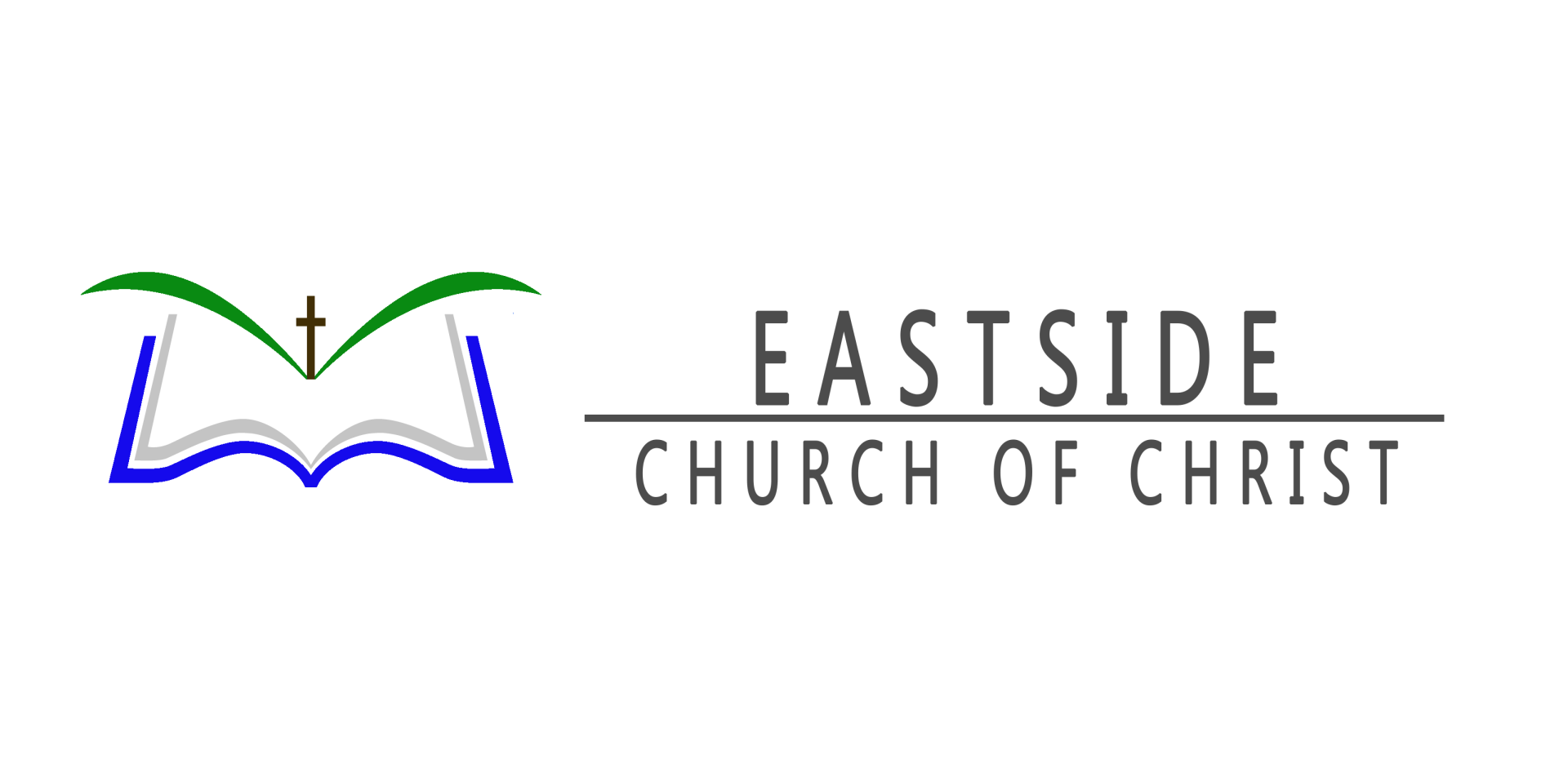Preachers are NOT Pastors, Elders, or Bishops
September 26, 2019
Kenneth Drew
Exposing The Devil's Lies!!!

How? or Does? , "Pastor/shepard/elder/overseer, and bishop, refer to the same person, and why is neither used to refer to the "preacher" (exclusively) in the scriptures? And, why does the denominational world persist on calling their preacher by these references, as if they were some type of entitlements to be bestowed upon him as being somehow, "holier than thou" or a step above the rest of the flock?
It is vitally important for us as christians, to know what God's word teaches about who can and who may not qualify to do the work of an elder/pastor/bishop, etc., in the church. This in stark contrast with, who can "qualify" to do the work of a preacher/evangelist, will make plain why the preacher and the elder do not share the same qualifications. Thereby concluding that the preacher/evangelist, has a separate and all together different role to carry out than the pastor/elder/bishop/shepard.
NOTE: Neither of which is a title, to be worn by men, to somehow distinguish them as being above all else, "The big man out front"; "The one leading the way, and calling the shots", but instead, as one whom has lead a life worthy of carrying out the duties assigned to them as an elder, according to the word, and will of God. (1Tim. 3:1-7)
The devil has over thrown the faith of many, who would undermine God's authority, on this crucial matter, by teaching that the preacher can be given the "title" of pastor, elder, or bishop, etc., and not meet the biblical requirements/qualifications. Satan has continued to perpetuate this lie amongst the denominational community, that the preacher is also the pastor or overseer, of the local congregation. All of this, in order for Satan to continue his desperate attempt to discredit the church of our Lord and savior Jesus the Christ. This ignorance has lead the so called, "religious world" even farther down the broad road of destruction, because they teach as doctrine, the commandments of men, and make void the word of God. To know that the primary duty of a preacher/evangelist is to spread the gospel of Jesus Christ, at his home congregation, but also in other places where the gospel may need preaching and also know that the primary job of an elder, or pastor/bishop, is to remain stationary at one congregation, to enforce righteous judgement amongst the ranks of the congregation, and for keeping out those wolves in 🐑 clothing. AMEN!
Let it not be once named amongst us, as becometh saints. 1 Peter 3:15 says, " but sanctify the Lord God in your heart, and be ready always to give an answer to every man that asketh you the reason of the hope that lies within you, with meekness and in fear" We are required by God, to give anyone who asks us,why we believe what we believe, a God breathed, answer. Let us be ready always.
The word pastor most closely corresponds to the word poimen in the New Testament, but there are other words that denote this position as well. Some denominations have the tradition that Pastors, Bishops (or Overseers), and Elders denote different positions. This interpretation does not hold up to Biblical scrutiny, however.
Bishops and pastors are not distinct from elders; the terms are simply different ways of identifying the same people. The Greek word for bishop is episkopos, from which the Episcopal Church gets its name. The Greek word for pastor is poimen. When used in it's proper textual context, evidence indicates that all three terms refer to the same office, in ever biblical application. The qualifications for a bishop, listed in 1 Timothy 3:1-7, and those for an elder, in Titus 1:6-9, are unmistakably parallel. In fact, in Titus 1:5,7, Paul uses both terms to refer to the same man.
First Peter 5:1-2 also brings all three terms together. Peter instructs the elders to be good bishops as they pastor: "Therefore, I exhort the elders [presbuteros] among you, as your fellow elder and witness of the sufferings of Christ, and a partaker also of the glory that is to be revealed, shepherd [pomaino] the flock of God among you, exercising oversight [episkopeo] not under compulsion, but voluntarily, according to the will of God."
We find similar connotations in the 20th chapter of the Acts of the apostles, which also uses all three terms interchangeably. In verse 17, Paul assembles all the elders [presbuteros] of the church to give them his farewell message. In verse 28, he says, "Be on guard for yourselves and for all the flock, among which the Holy Spirit has made you overseers [episkopos], to shepherd [pomaino] the church of God."
In general usage, the term elder may be preferred because it seems to be free of many of the connotations and nuances of meanings that have been imposed on both bishop and pastor by our culture in the USA.
So, Episkopos , the word for bishop, means "overseer," or "guardian." The New Testament uses episkopos five times. In 1 Peter 2:25, Jesus Christ is called the episkopos of our souls. That is, He is the One who has the clearest overview of us, who understands us best, and He is "the Shepherd and Guardian of [our] souls." The other four uses of episkopos have reference to leaders in the church.
Thus episkopos suggested two ideas to the first-century Greek mind: subordinates to a superior power, and an introduction to a new order of things. During that time, Gentile converts would immediately understand those concepts in the term, due to their usual subordinate position in that society.
It is truly interesting to trace the biblical uses of episkopos. It appears in the book of Acts only once, near the end (Acts 20:28). But, of course, at that time, there were relatively few Gentiles in the church, and so the term was not commonly familiar or used. But apparently as Gentiles were saved and the church began to lose its Jewish orientation, the Greek culture's word episkopos was used more frequently to describe those who functioned as elders (1 Timothy 3:1).
The New Testament bishop, or overseer, is in a unique leadership role in the church, specifically responsible for teaching (1 Timothy 3:2), feeding, protecting, and generally nurturing the flock (Acts 20:28). Biblically, there is no difference in the role of an elder, and that of a bishop; the two terms refer to the same type of leadership. Episkopos emphasizes the function; presbuteros, more so, the character.
Poimen, the word for pastor, or shepherd, is used a number of times in the New Testament, but Ephesians 4:11 is the only place in the King James Version where it is translated "pastor." Every other time it appears in the Greek texts, it is translated "shepherd" in the English version.
Two of the three times it appears in the epistles, poimen refers to Christ. Hebrews 13:20-21 is a benediction: "Now the God of peace, who brought up from the dead the great Shepherd [poimen] of the sheep through the blood of the eternal covenant, even Jesus our Lord, equip you in every good thing to do His will." (1 Peter 2:25) says, "For you were continually straying like sheep, but now you have returned to the Shepherd [poimen] and Guardian [episkopos] of your souls."
Poimen , then, emphasizes the pastoral role of caring and feeding, although the concept of leadership is also inherent in the picture of a shepherd. The focus of the term poimen is primarily on the man's attitude. So, what we learn from this is, for a man to be qualified as a pastor, a he must first have a shepherd's caring heart.
So the term elder emphasizes who the man is. Bishop speaks of what the man does. And pastor deals with how he is to subjugate love. So, we learn that all three terms are used of the same church leadership, and all three identify those who feed and lead the church (Not primarily as the mouth piece from the pulpit), but each has a unique emphasis.
By becoming more familiar with our understanding of the meanings and proper definitions of these terms will definitely helps us to better realize the overall concept of this position or office in the church. Therefore, the qualifications given for an elder is the same for a bishop, and pastor/shepard. So to mishandle the word of God, by referring to the one who is the preacher (of or at) any particular congregation, as the pastor/shepard, bishop, or elder, would not be the correct way to rightly divide the word of truth.
Don't fall for the enemies lies and deciete! We should always let the bible be the final authority when it comes to spiritual matters of the church. AMEN!
Eastside Church of Christ Blog

Cor. 12:27-28 'Now' ye are the body of Christ, and members in particular. And God hath set some in the 'church'.....ISN'T THE BODY THE CHURCH AND THE CHURCH THE BODY? If that is the case , the 'body of Christ,' is the same as the 'church of Christ.' I see it in these two verses do you? Paul called the body of Christ , the church, therefore it is the church of Christ.

From about 1000 AD in England, Christians called by their enemies derogatory terms such as Waldensian, Lollard, Pelagian and Anabaptist, who baptised believers for the remission of sins by immersion upon confession, have been active in Great Britain and even earlier in Europe. They called themselves Christians and the church - The Church of Christ, having met continuously to join in fellowship with the Restoration Movement in the 1840s.









